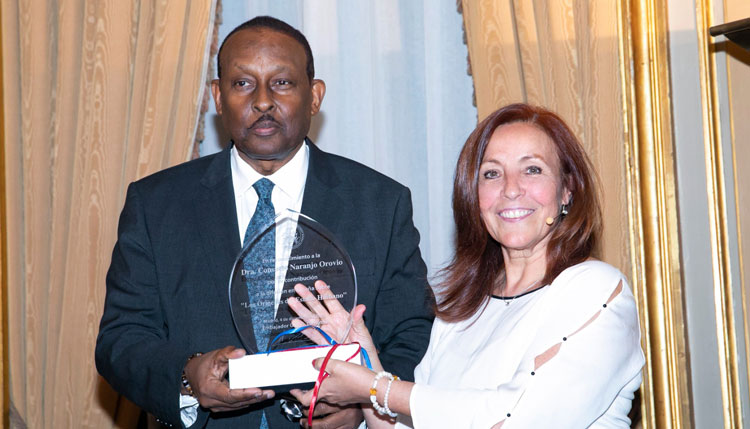The Diplomat
Last Monday, the Embassy of Haiti organised the conference Origins of the Haitian State (1697-1689), in the Miguel de Cervantes hall of Casa de América, given by Professor Consuelo Naranjo Orovio, director of several research projects on the social and cultural history of Latin America, particularly the Caribbean.
Representatives of the Haitian community in Spain and ambassadors were present at an event that recalled the essence of two dates that have marked the history of the Haitian people: the encounter of Christopher Columbus with the inhabitants of the island (1492) and the Battle of Vertières.
The Haitian Embassy points out in its communiqué that “the holding of this event is part of its duty to remember the successful leadership of the slaves of Saint-Domingue, who had very few resources and suffered oppression and physical abuse of all kinds”.
Professor Consuelo Naranjo Orovio reviewed the history of the Caribbean country and gave a broad overview of the evolution of Santo Domingo since its creation. “In a concise 90-minute presentation that resembled a real history lesson,” the embassy communiqué said, the former director of the Institute of History of the CSIC (Spanish National Research Council) made some enlightening observations on the political challenges from the cession by Spain to France of the western part of Hispaniola in 1697 to the creation of the State of Haiti in 1804. “The history of the Haitian revolution, he noted, is closely linked to imperial struggles, the slave trade, African slave labour, the commodity trade, the wealth generated by a slave colony and the slaves’ struggle for freedom.”
For his part, the Haitian ambassador, Joseph Guy Lamothe, pointed out that “why are we often reminded that the oppressed have wanted to change the world since 1791 in Europe, America and Africa, among other places? It is to show the world today that the words leadership, vanguard, motivation and discipline have forged the world we have today. And this is what characterises the country that brings us here today to remember three dates: 1492, 1876, 1804.”








